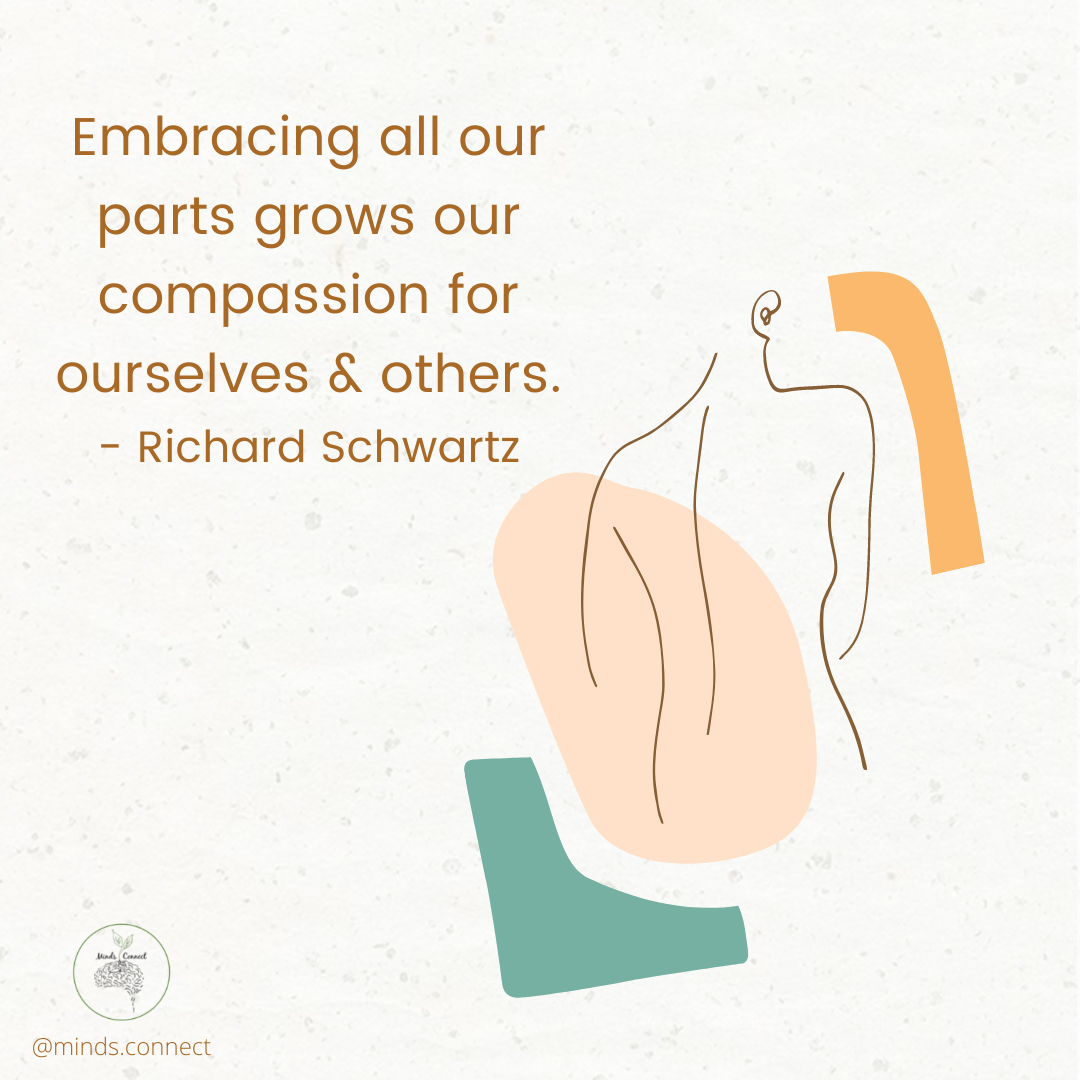|
“A part is not just a temporary emotional state or habitual thought pattern. Instead, it is a discrete and autonomous mental system that has an idiosyncratic range of emotion, style of expression, set of abilities, desires, and view of the world. In other words, it is as if we each contain a society of people, each of whom is at a different age and has different interests, talents, and temperaments”
― Richard C. Schwartz, Internal Family Systems Therapy These parts act as if they were different people inside our mind. When we are calm these parts seem to be well integrated. But, when we are under stress, some of those parts are pushed to extreme positions. Sometimes our inner parts have conflicting needs and desires and can cause emotional pain. One part may want to go out and have fun, and another part may feel too exhausted and prefer to stay home and relax. One part may be afraid of relationships and another part may desperately want to meet someone. Different realities can coexist but can generate a feeling of unresolved conflicts. This often activates the famous inner critic. This is just another part that lives inside us and comes to tell us something. It shows up to tell us that there is something we should pay attention to. The IFS model states that there is never any reason to fight with, coerce, or try to eliminate a part as they are all there for a reason. The IFS method promotes internal connection and harmony. Have you considered that maybe the inner critic isn't so bad after all? According to the IFS model, we all have a compassionate, understanding, and grounded Self that is seen as a leader of our inner family. Our Self is able to guide us to integrate our disparate parts through its capacity for compassion, curiosity, and connection. The first step to begin to heal the conflict between our different parts to foster compassion towards them. It is a normal human reaction to try to get rid of the inner critic or other parts that can generate uncomfortable emotions. However, we know that the more we try to get rid of them, the more intensely they will come. IFS sees the therapist’s job as helping the client to disentangle themselves from their parts and access the Self, which can then connect with each part and heal it, so that the parts can let go of their destructive roles and enter into a harmonious collaboration, led by the Self. How to develop compassion? Through compassion, we understand that the various internal parts have positive intentions. Compassion is the best antidote to inner criticism. - Try to understand it - Be curious about why it has showed up - Think about what is it trying to communicate - Try to connect with our Self Doing all these steps will help us calm our inner critic that lives within all of us. Most of the time we realize that the inner critic wants to protect us from pain or, paradoxically, tries to help us feel good about ourselves. Some of these parts may have a distorted perception of situations or they may exaggerate dangers. For example, maybe because we have failed an exam once, the internal critic shows up to tell us that we will always fail and that we are not good enough. This distortion is based on past experiences, but deep down, it has the purpose to protect us. The key is to change the critical voice for a compassionate voice. Since the parts are like different people within us, we can try to:
In therapy, we welcome all of our parts with curiosity and compassion, trying to understand them from our wise and grounded adult Self. Please share in the comments if you have a hard time giving compassion to your inner critic! I would love to read about your experience.
0 Comments
Leave a Reply. |
AuthorHi there! Archives
January 2022
Categories |

 RSS Feed
RSS Feed
